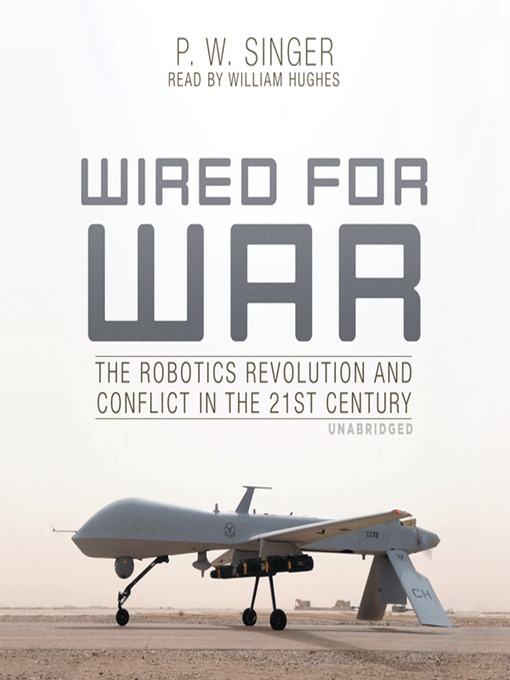
Wired for War
The Robotics Revolution and Conflict in the 21st Century
کتاب های مرتبط
- اطلاعات
- نقد و بررسی
- دیدگاه کاربران
نقد و بررسی

Singer's book briefly covers the history of robots in popular culture and present-day commerce. Primarily, it examines the use of robotic and unmanned equipment in warfare and speculates on its future. William Hughes's slightly hoarse voice is unremarkable but likable, and he uses it well, matching his inflections to the sense of the text and keeping to a quick, but not too quick, pace. Without overdoing it, he brings to the book a sense of excitement and wonder appropriate to the subject matter. However, his discomfort with foreign words and unfamiliar terms is clear, and he gets most wrong, sometimes confusing the listener. Still, the book is inherently interesting, and Hughes's tone, inflections, and manner help maintain that interest. W.M. (c) AudioFile 2011, Portland, Maine

November 17, 2008
Brookings Institute fellow Singer (Children at War
) believes that “we resist trying to research and understand change” in the making of war. Robotics promises to be the most comprehensive instrument of change in war since the introduction of gunpowder. Beginning with a brief and useful survey of robotics, Singer discusses its military applications during WWII, the arming and autonomy of robots at the turn of the century, and the broad influence of robotics on near-future battlefields. How, for example, can rules of engagement for unmanned autonomous machines be created and enforced? Can an artificial intelligence commit a war crime? Arguably more significant is Singer’s provocative case that war itself will be redefined as technology creates increasing physical and emotional distance from combat. As robotics diminishes war’s risks the technology diminishes as well the higher purposes traditionally used to justify it. Might that reduce humanity’s propensity for war making? Or will robotics make war less humane by making it less human? Singer has more questions than answers—but it is difficult to challenge his concluding admonition to question and study the technologies of military robotics—while the chance remains.

























دیدگاه کاربران